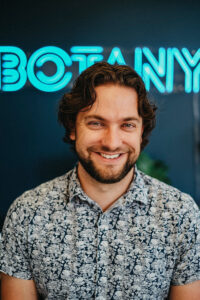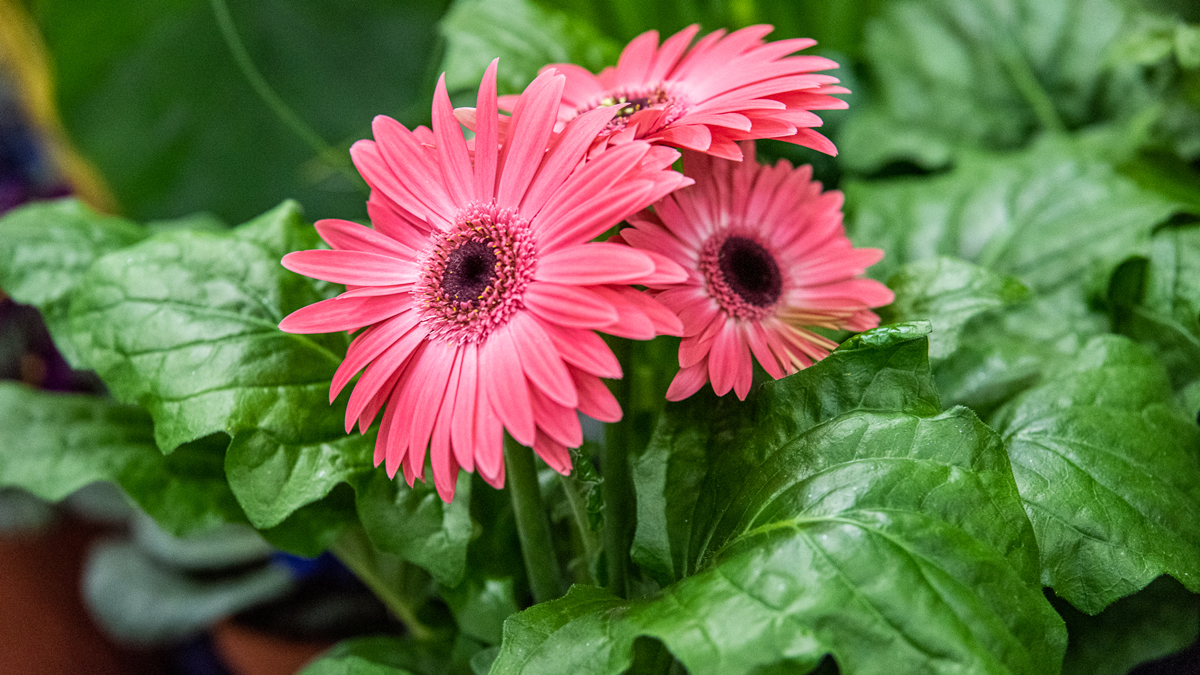‘Let’s Grow Stuff’ host Ben Futa looks ahead to Garden & Landscape Expo
February 2, 2022 Leave a Comment

Let’s Grow Stuff host Ben Futa.
PBS Wisconsin’s Garden & Landscape Expo is a midwinter oasis for people ready to venture out and dig their hands in the dirt. Now in its 29th year, this three-day event offers more than 100 free educational presentations, an exhibitor mall, insight from UW-Madison Extension Horticulture experts, a floral design competition and more.
Garden & Landscape Expo will be a masked event. All attendees are required to wear a mask that covers their nose and mouth. Thank you for your cooperation with this important safety requirement.
Anyone who is feeling unwell or showing any symptoms of illness should not attend Garden & Landscape Expo. Anyone who has recently been diagnosed with COVID-19, has recently had direct contact with an individual diagnosed with or suspected to have COVID-19, or is displaying symptoms commonly associated with COVID-19 should not attend Garden & Landscape Expo. We will continuously monitor for updates from health officials.
Among the expert gardeners presenting at Garden & Landscape Expo is Ben Futa, host of PBS Wisconsin’s Let’s Grow Stuff. In anticipation of the event, we chatted with Ben about enthusiasm and community around gardening.
PBS Wisconsin: What drives your discovery in gardening? Where do you look to find inspiration and learn new things?
Ben Futa: Since I’m a public garden nerd, I follow a lot of public gardens. I sort of equate public gardens to fancy restaurants because they’re the ones who are innovating, trying new ideas. They get to experiment in a safe space where if it doesn’t work, it’s not the end of the world, but they can also push the envelope a little bit in terms of what’s considered acceptable because they’re an experimental place. So public gardens, broadly speaking, and then it feels so cliché to say, but Pinterest.
PBS Wisconsin: Tell us about the presentation you’ll give at the PBS Wisconsin Garden & Landscape Expo.
Futa: It’s called “The Ecological Garden,” and what I’ve found from working in public gardens, and when people hear the terms “ecological plantings” or “native plantings” there’s this negative connotation of messy, unkempt or laziness because of how plants look, essentially.
People seem to think that gardening in a way that’s nature-friendly also has to look a certain way. And it doesn’t. You could have an exceptionally formal garden that’s super ecologically robust.
So I’m presenting practices and techniques for managing your garden no matter what it is you’re growing, but also design hacks if you’re trying to grow more ecologically and you want to avoid the trope or the negativity about looking unkempt. I’ll show some ways to make it feel intentional, make it feel accessible to everybody, even people who aren’t gardeners.
PBS Wisconsin: What do you enjoy most about Garden & Landscape Expo?
Futa: Even last year when it was all virtual, there is a community that’s built around this event. Gardeners, I think, are just naturally really warm and sharing and giving and nurturing. And, you know, that’s just amplified at Expo. It’s like every room I’m in at any time, people are excited. People are engaged. People are just glad to be somewhere warm with green stuff, too.
PBS Wisconsin: What are your tips for someone who is interested in getting into gardening or someone who has tried before and hasn’t had a lot of success?
Futa: Realizing that the process of gardening is in fact the ultimate product. So often I think people are drawn to new hobbies or new passions by this idea that, you know, I can learn how to do this thing, produce this thing. And then think, “I’m done,” and move on. Or we are shown in, you know, the HGTV type of world or makeover shows like, “Look! In 45 minutes I have a garden!” That’s not how it works.
Gardens are built over time. They’re built through a lot of trial and error. I think the best thing anybody could do is go to things like Expo to help you reduce the chances that you’re going to have to fail in order to learn or if you have failed, you’ll understand why. There’s still going to be things that don’t go as planned, but we learn to embrace that as part of the process and as part of the joy of what gardening is like.
The other way I think about it is, we live in a world where algorithms can predict our behavior better than we can, but gardening can genuinely surprise us. And there’s something to be said for genuine surprises. There’s so much more authentic joy in them than anything else.
Made in Wisconsin Garden and Landscape Expo Let's Grow Stuff Ben Futa gardening
 Passport
Passport





